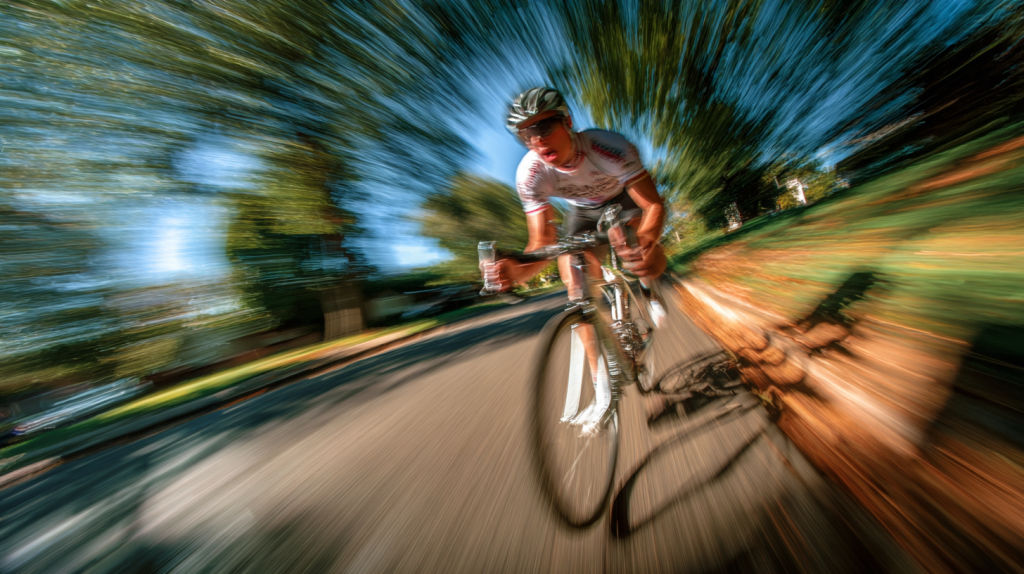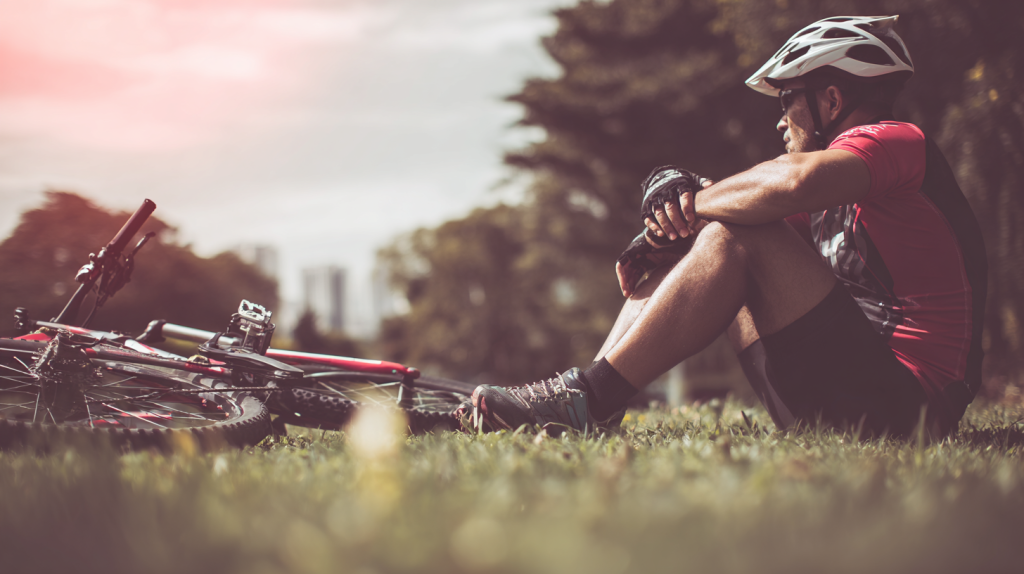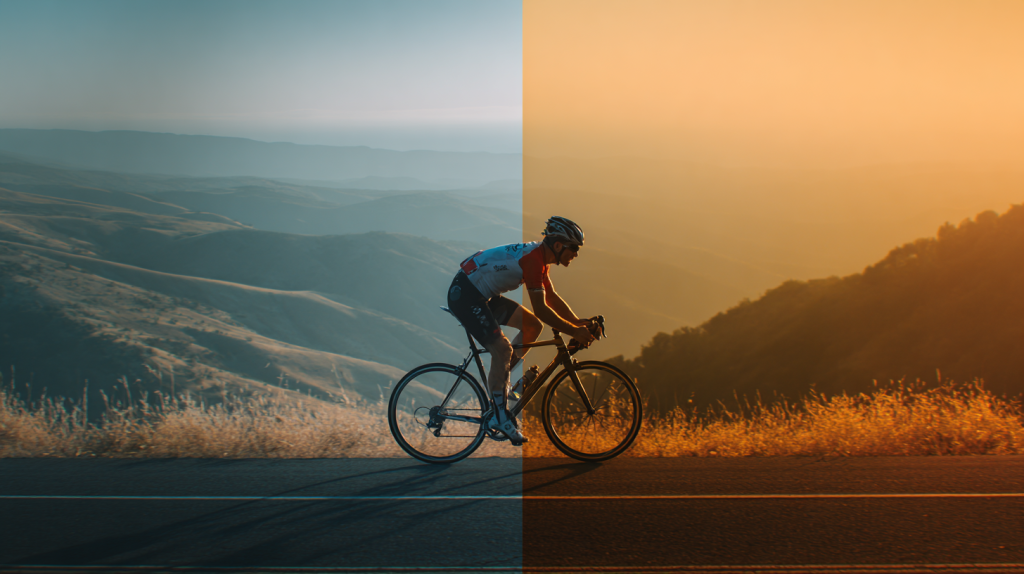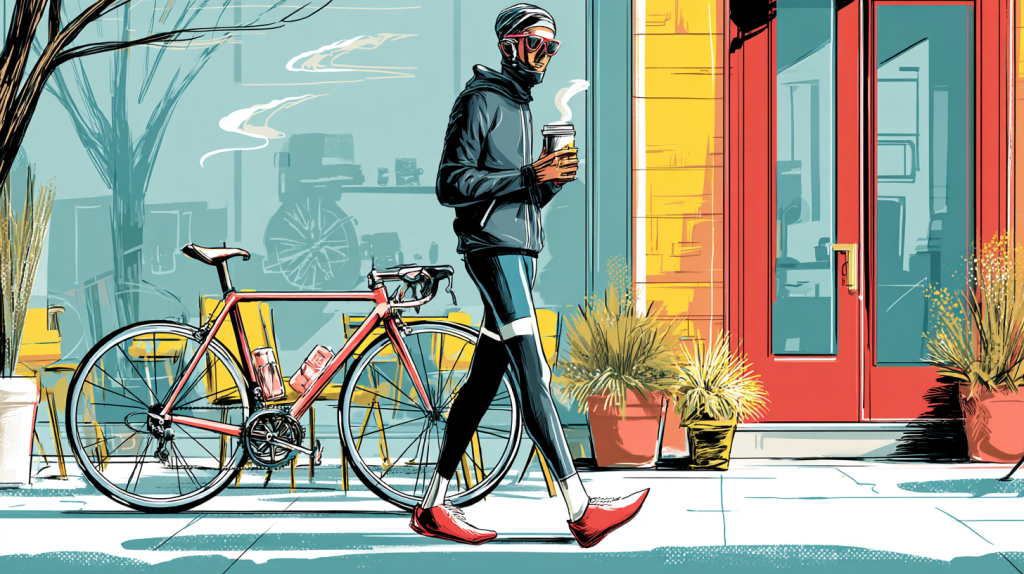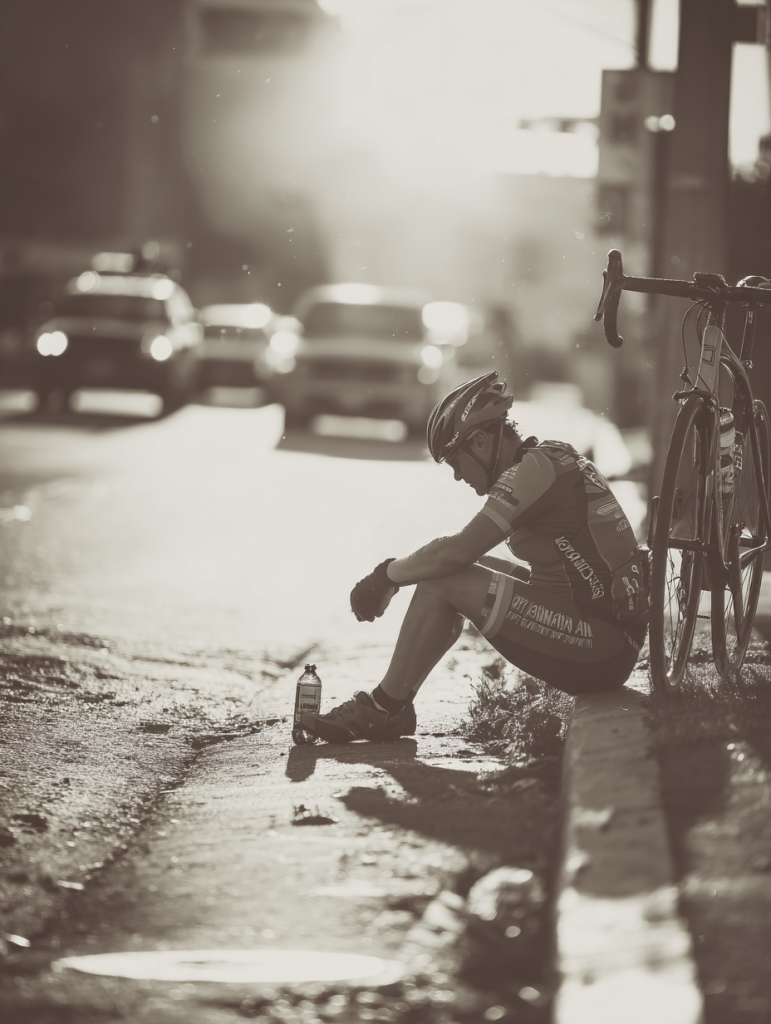The Real Cost of Skipping Recovery: Why Rest Is Every Cyclist’s Secret Weapon
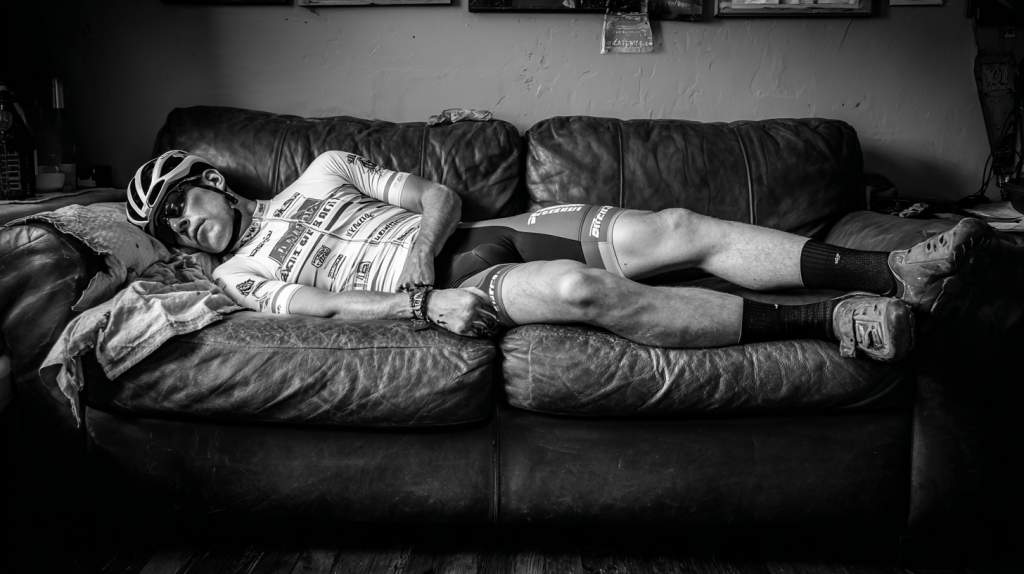
There’s a certain pride in cycling culture around pushing harder. We love posting screenshots of our biggest interval sessions, longest rides, or new FTP numbers. But you’ll rarely see someone brag about getting nine hours of sleep or spending 20 minutes stretching.
And that’s the problem.
Cyclists often treat recovery as an afterthought, when in reality it’s the foundation of progress. You don’t get stronger during the ride—you get stronger in the hours and days after, when your body adapts to the stress you just put it through. Skip recovery, and you’re not building fitness. You’re just digging yourself into a deeper hole.
Why Recovery Matters
When you train, you’re breaking down muscle fibers, depleting energy stores, and stressing your nervous system. Recovery is when your body:
- Repairs those muscle fibers so they come back stronger
- Refills glycogen stores so you’re ready for the next effort
- Balances hormones and reduces systemic stress
- Reinforces neuromuscular connections that improve efficiency
Without recovery, you don’t adapt—you just accumulate fatigue.
What Happens If You Skip It
Ignoring recovery might not hurt right away, but the effects add up:
- Performance plateaus – You’ll feel like you’re riding hard but never getting faster.
- Increased injury risk – Overuse injuries (knees, tendons, back pain) creep in when your body doesn’t repair.
- Burnout – Mental fatigue from constant training stress can kill motivation.
- Immune system suppression – Overtraining without rest makes you more likely to get sick.
Recovery Like the Pros
Here’s the part most riders don’t realize: pros aren’t superhuman because they train harder—they’re superhuman because they recover harder. Their daily routine often includes:
- Sleep: 9–10 hours at night, plus naps during the day
- Nutrition: Timed carb intake for glycogen restoration, protein for repair, and micronutrients for overall health
- Massage & stretching: Keeping muscles loose and functional
- Active recovery rides: Easy spins to promote blood flow without stress
- Mental downtime: Watching TV, reading, or simply doing nothing
And while we might not have a pro’s schedule, we can borrow their principles.
Simple Recovery Habits You Can Start Today
You don’t need a team bus or a personal soigneur to recover like a pro. Here’s what works in the real world:
- Prioritize sleep – Aim for 7–9 hours per night. Make it non-negotiable.
- Fuel your recovery – Within 30 minutes of finishing a ride, get carbs and protein.
- Hydrate smart – Replace fluids and electrolytes lost on the bike.
- Stretch or foam roll – 10 minutes can prevent stiffness from becoming injury.
- Plan rest days – Don’t just ride every day because you feel guilty. Rest is training.
- Listen to your body – Fatigue, irritability, and elevated resting heart rate are all red flags.
Want to ride stronger, faster, and longer? Don’t just focus on the grind. Focus on the rest. That’s where the magic happens. The next time you’re tempted to stack another hard session, ask yourself: Do I want to train hard today, or do I want to get better tomorrow?
Because at the end of the day, improvement isn’t earned on the bike alone. It’s earned in bed, at the dinner table, and in the quiet hours you give your body to adapt.

